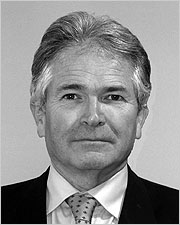Investor’s knowledge, advice and impact of financial crisis
The Claimant was Mr Rubenstein. He was a customer of the Defendant, HSBC Bank. The Claimant was a medium sophisticated investor, but the judge felt that his capacity to understand investments should not be considered in isolation from that of his wife who had been an investment banker.
After selling a property in 2005 the Claimant was in a position to make an investment of £1.25million. The Defendant suggested that he invest the money in an AIG Premier Access Bond. The only fund mentioned by the Defendant was the enhanced variable fund and it was in this fund that the Claimant made his investment. The Claimant wanted his capital protected and was told this investment was like a cash deposit.
When Lehman Brothers filed for bankruptcy in September 2008, the Claimant attempted to withdraw his investment from the fund but was told that he could not do so. Ultimately he received back only a fraction of his investment and sought damages of approximately £186,000 from the Defendant. He claimed that the Defendant had been negligent and/or was acting contrary to COB when it suggested investing in the fund.
It was held that the Defendant had given advice when it suggested the Bond and the fund to the Claimant, advice being information accompanied by or being the product of a comment or value judgment.
In breach of COB the Defendant had failed to give the Claimant suitable advice (a number of other breaches were also identified). Neither the Claimant nor his wife knew detail about the type of product being sold in 2005. Furthermore, it was held that the scope of the Defendant’s duty in contract and tort embraced the requirements of COB meaning a breach of COB constituted negligence.
Despite winning substantively, only minimal damages were awarded to the Claimant. It was suggested that where loss was caused by the financial crisis not the unsuitability of the Defendant’s advice. The loss was unforeseeable and therefore too remote.
Link: Rubenstein v HSBC Bank [2011] EWHC 2304 (QB)
Appeal
The High Court judge found in the Claimant’s favour on the question of liability, finding the Defendant to have been negligent and in breach of statutory duties when it recommended that the Claimant invest in an EVRF fund. However, the High Court judge stated that the loss was unforeseeable and too remote as it was caused by the financial crisis, and he awarded only nominal damages.
In the Court of Appeal it was held that the High Court judge had been correct in finding the Defendant liable. However, in the Court of Appeal’s view where a case concerns statutory duties, scope will be ascertained by reference to the statute itself, with contract and tort following in behind. Here the purpose of the statute (FSMA 2000 and the COB rules) was to afford customers protection. On the facts the Claimant, as the High Court found, had clearly been misled by the Defendant and was recommended an unsuitable investment.
The Court of Appeal then turned to the causation and remoteness point. It considered the famous mountaineer example where it is said that a doctor who wrongly tells his patient that his knee is healed will not be liable when on the back of that advice the patient goes mountaineering and incurs an injury unrelated to the knee. The Court felt that the present case was not a mountaineering type case when it came to remoteness. The Claimant’s loss arose out of the very fact which made the investment unsuitable – the risk of exposure to market flutations which on the facts was the collapse of the secondary market for EVRF (not the Lehman collapse). While the precise extent of the loss might not have been foreseeable, the loss was a feature of market stress and it was of the type foreseeable.
The Defendant submitted that at no point did it guarantee that there would be no capital loss beyond the first year of investment given that the Claimant had intended to take out his investment by this time. However, the Court of Appeal were not willing to limit the Defendant’s liability to such given the uncertain nature over the length of the investment.
Link: Rubenstein v HSBC Bank [2012] EWCA Civ 1184
Interested in expert witness and dispute resolution services?
Disclaimer: The above case summary is derived from publicly available information and is not intended to be anything more than a statement of the author’s views on the salient factors of the case. It is not intended and should not be understood to be legal advice of any sort. All views are solely those of the author and no use of the summary should be made without statements being checked against the source of information. Expert Evidence Limited takes no responsibility for the views expressed. The copyright of the summary is owned by Expert Evidence Limited but may be used with written permission which may be forthcoming on application through the contact us page. This news item is not intended to imply or suggest that Expert Evidence Limited was involved in the case, only that it is considered an interesting legal development.


















